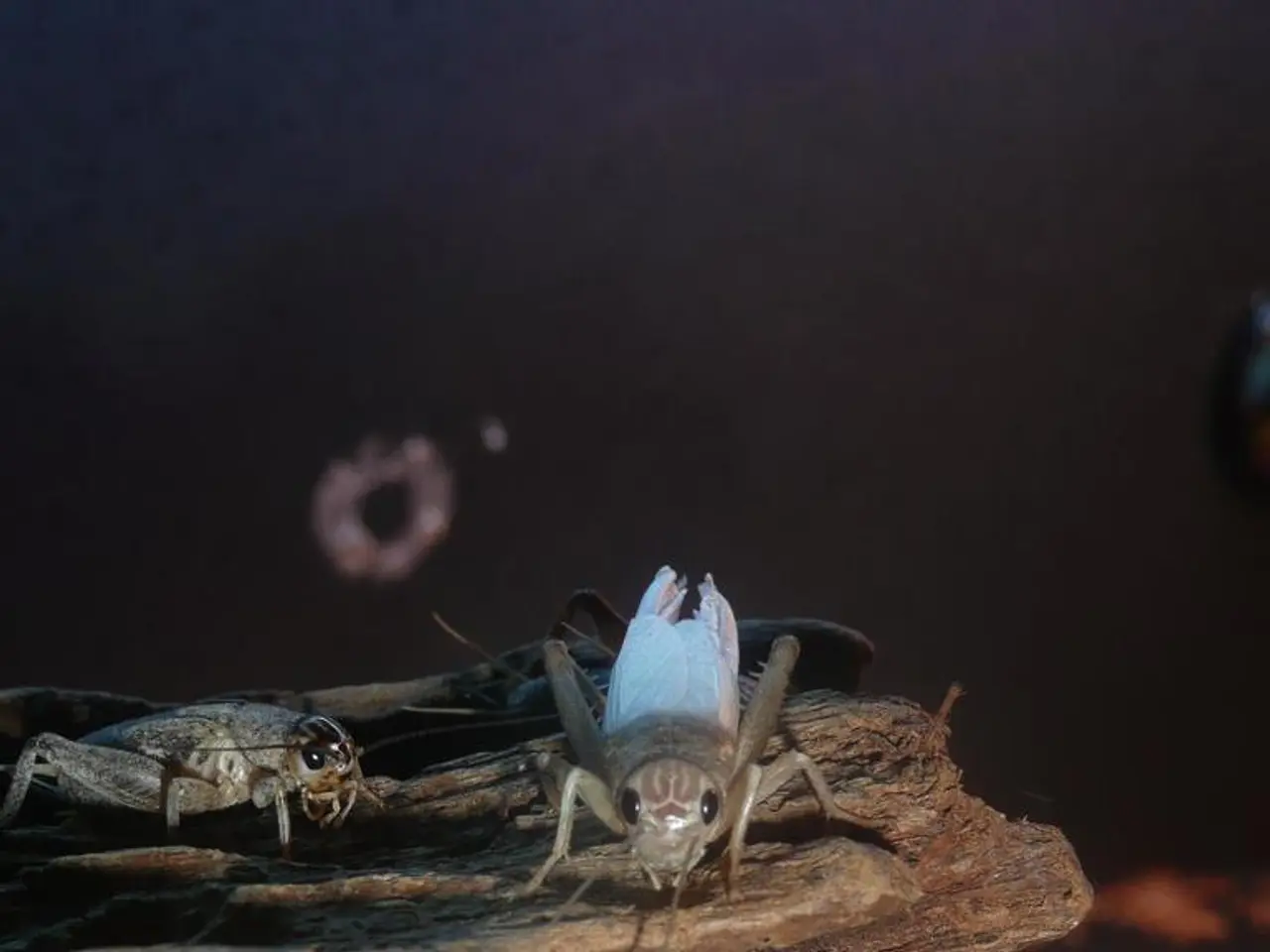Oak procession season starts in Düsseldorf
In the heart of Düsseldorf, a common yet potentially harmful pest has made its presence known - the oak processionary caterpillar. The city has taken measures to combat these pests, particularly in sensitive locations, and has issued safety guidelines for the public.
The oak processionary caterpillars, while not eliminable from all oaks in the city area, will be controlled at sensitive locations. To ensure safety, affected areas will be cordoned off during bio-pesticide spraying, becoming fully usable again once the agent has dried.
These caterpillars are distinct from harmless web-spinning moths that give trees a cotton candy-like appearance. The urticating hairs of the oak processionary caterpillars, containing a toxin called thaumetopoein, can cause skin rashes, eye infections, itching, and asthma-like reactions in humans. To minimise health risks, the city has called for caution.
First aid for human contact with the hairs involves prompt removal of the hairs from the skin, thorough washing of the affected area, and symptomatic relief. Here are the key steps:
- Carefully remove any visible caterpillar hairs from the skin using adhesive tape or sticky tape to lift off the tiny, barbed urticating hairs.
- Wash the affected skin area thoroughly with soap and water to remove any residual hairs or toxins.
- Avoid rubbing or scratching the area, as this can further embed hairs and worsen symptoms.
- Apply topical treatments that relieve itching and irritation, such as mentholated creams or products like Mentho10, which offer relief from stinging and skin inflammation caused by these hairs.
- In case of eye or throat irritation, rinse eyes with clean water and seek medical advice if symptoms persist or worsen.
If symptoms like severe allergic reactions, breathing difficulties, or widespread skin reactions occur, professional medical treatment should be sought immediately.
Trees to be sprayed are located near playgrounds, schoolyards, kindergartens, main paths on cemeteries, and heavily frequented streets. Approximately 7,500 oaks are present in the Düsseldorf city area, and around 750 of these oaks will be sprayed with a bio-pesticide made from neem seeds.
In case of contact with caterpillar hairs, do not scratch, change clothes immediately, shower thoroughly, and wash hair. Also, avoid the vicinity of affected trees as the hairs can be spread by the wind.
The owner is responsible for removing affected trees on private properties. Traps consisting of bags with a natural attractant from the common oak will be used on 100 trees in the Düsseldorf city area. These traps have proven successful in recent years, but they are not a new measure.
If you encounter any affected trees in the city area, you can report them to the garden department via email at [email protected]. Stay safe and be cautious during this period of bio-pesticide spraying and oak processionary caterpillar control in Düsseldorf.
The city will take preventive measures to safeguard mental health and well-being of its citizens by minimizing health risks associated with the oak processionary caterpillars. The thumb rule for encountering these caterpillars remains prompt removal of visible hairs, thorough washing, and seeking medical help if necessary, as the hairs can cause skin rashes, eye infections, itching, and asthma-like reactions. Additionally, paying heed to environmental-science implications, the city will spray bio-pesticides derived from neem seeds on approximately 750 affected oaks in sensitive locations such as playgrounds, schoolyards, kindergartens, and heavily frequented streets to reduce their population.




